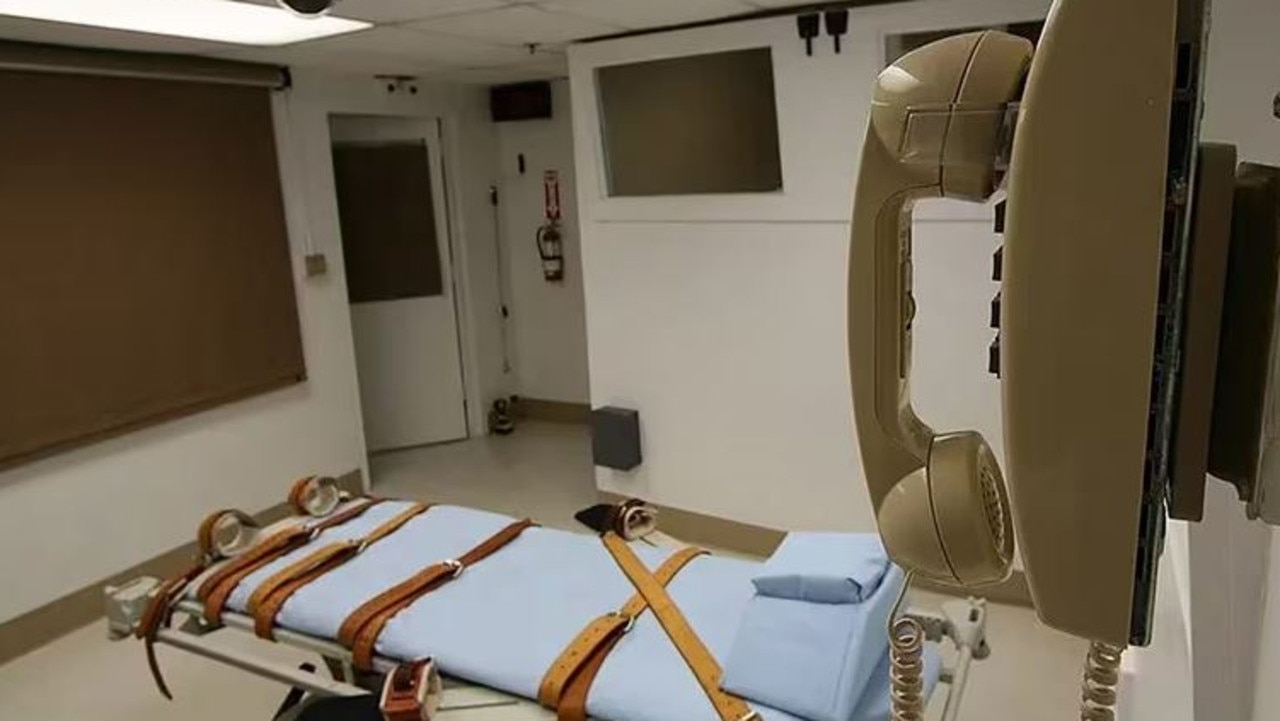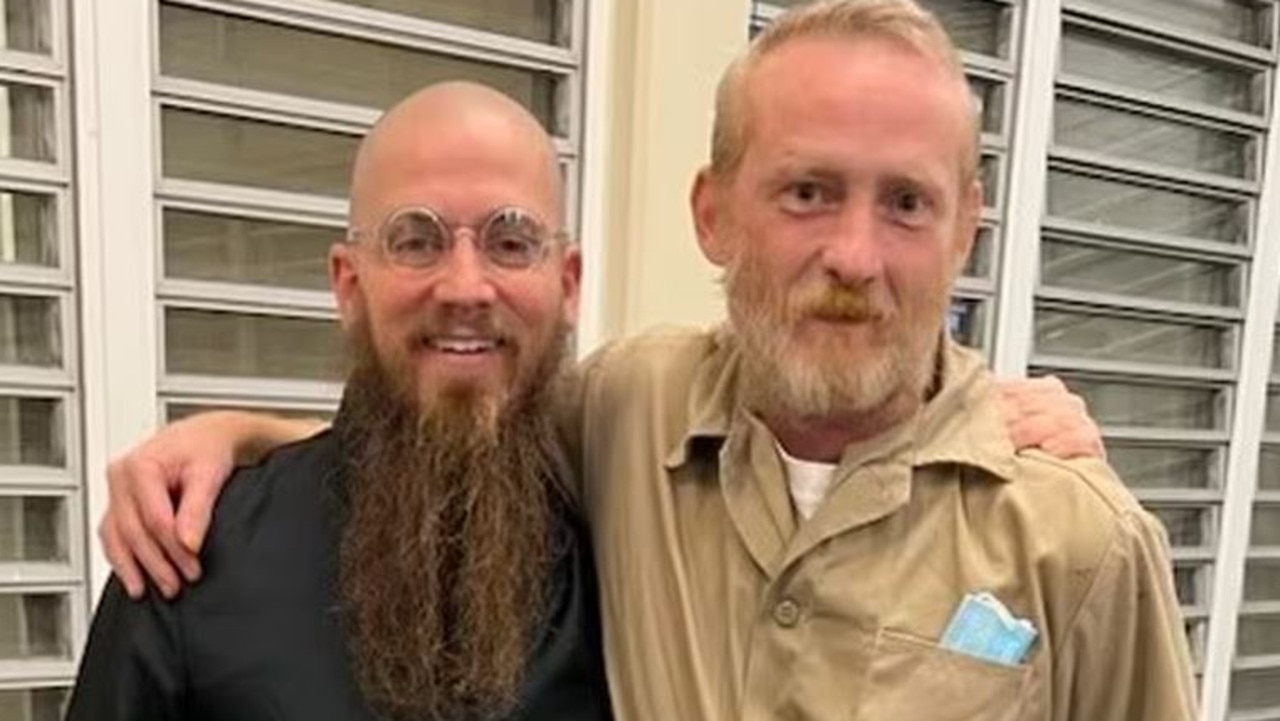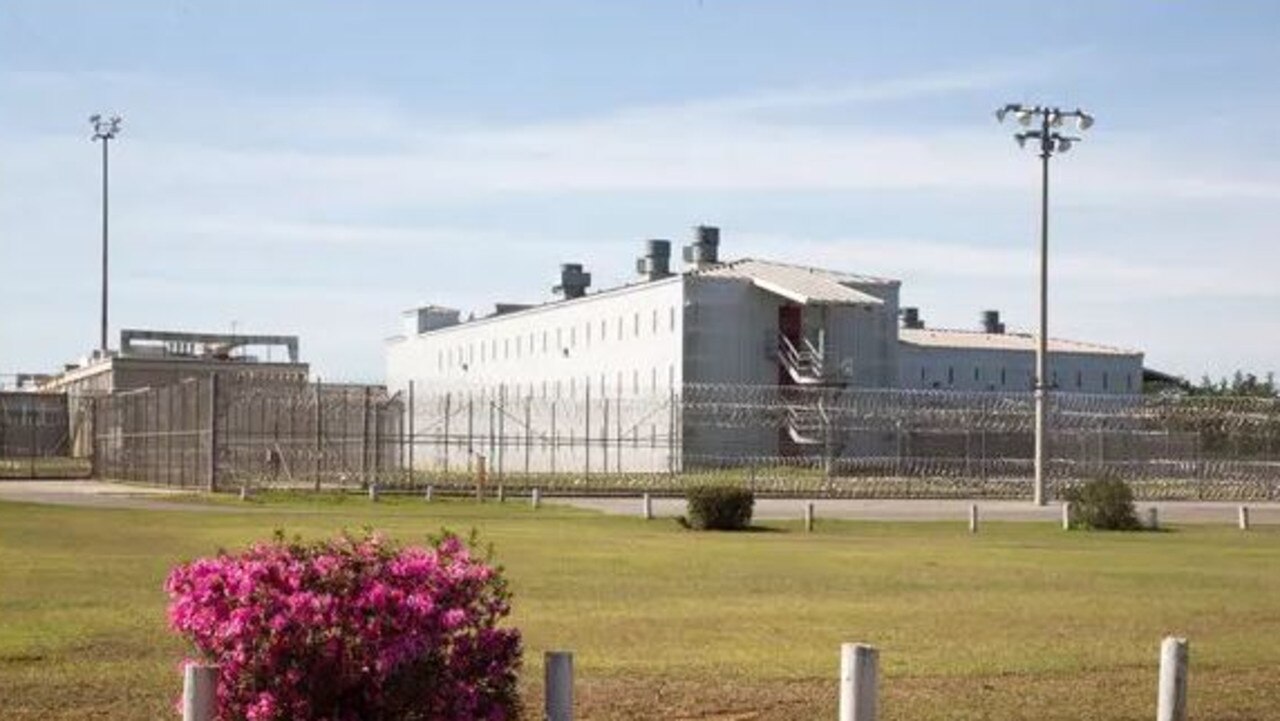Death row inmate’s chilling last words before execution
An inmate’s chilling last words before being executed took aim at his executioner over alleged crimes involving an Australian woman.
An inmate’s chilling last words before being executed have sent shockwaves around the world as he took aim at his executioner over alleged crimes involving an Australian woman.
Casey McWhorter was three months past his 18th birthday when he murdered a man during a home invasion and robbery in February, 1993.
He shot and killed Edward Lee Williams, 34, and has spent the last almost 30 years sitting on death row at Holman Correctional Facility in the US state of Alabama.
Three decades after his crime, 49-year-old McWhorter was executed on Thursday last week by lethal injection, being pronounced dead at 6:56pm local time.
Prior to execution, he had refused his breakfast and lunch, before opting to have a final meal of Turtles chocolate candy, according to the Daily Mail.
Before his death, he expressed his love to his mother and relatives, while also telling the victim’s family that he was sorry and hoped that they had found peace.

“I would like to say I love my mother and my family,” he said.
McWhorter than added one final comment aimed directly at the warden of the facility — the man who would be overseeing his last moments.
“It’s not lost on me that a habitual abuser of women is carrying out this procedure” he said.
This was an apparent reference to Terry Raybon, the warden of the prison where the execution was taking place.
According to AL, the former Alabama state trooper was fired two decades ago, with a judge later describing him as a man who “beats on women, consorts with felons, and neglects his official duties”.
Raybon is now the state executioner and warden at one of the state’s most notorious prisons.
The alleged incidents that lead to his termination were detailed in an April 2000 federal lawsuit that Raybon filed.
He claimed that the Alabama Department of Public Safety and its supervisors’ decision to fire him was “racially motivated”, however a judge ruled in April 2001 that this was untrue, issuing a scathing report.

“The Alabama Department of Public Safety fired a state trooper who beat up two of his female acquaintances, refused to perform his work acceptably, and incurred various debts from convicted felons,” District Judge Ira De Ment wrote at the time.
“That should have been the end of it, since in any sane world the police should not be required to employ persons of questionable character. But this state trooper has made a federal case of it, alleging that he was canned because of his race.”
Australian link to executioner
According to a state filing in the lawsuit, the chief cited three reasons why Raybon was fired, including a “domestic violence altercation” with an Australian woman back in 1998.
A report was allegedly made which indicated Raybon “beat or used physical force against a woman to such extent that hospital treatment was necessary.”
De Ment’s 2001 order ruling against Raybon said a doctor diagnosed the woman with a perforated left ear drum and multiple bruises.
Raybon denied hitting her. It states that the Australian woman travelled to Alabama to meet Raybon after she met him online, where he used the name “Supertrooper.”

The judge added that the woman went back home after the incident, which left her feeling “defeated and with a broken spirit.”
In another alleged domestic violence incident noted in the lawsuit, Raybon reportedly “used physical force against a woman in a hotel room, causing injury to her by striking her face with a telephone, pushing her and breaking off a fingernail” back in 1999.
Raybon started working at the Alabama Department of Corrections in 2000, about one year after being fired from the state trooper’s office.
As of May 1, 2022, Raybon is a “correctional warden III” making just shy of $8,000 a month, according to the Alabama Political Reporter.

Sentenced to death
At the time of McWhorter’s sentencing, prosecutors said he conspired with two younger teenagers – including the victim’s 15-year-old son – to steal money and other items from Williams’ home and then kill him.
The jury recommended a death sentence, with a vote of 10-2 which a judge imposed, according to court records.
The younger teenagers involved in the crime – Edward Lee Williams Jr. and Daniel Miner, 16, – were sentenced to life in prison.
“It’s kind of unfortunate that we had to wait so long for justice to be served, but it’s been served,” the victim’s brother, Bert Williams, told reporters after the execution.

He pointed out that the lethal injection meant McWhorter had a “peaceful death”, unlike the violent end he said his brother had endured.
The curtain to the execution chamber was reportedly opened at 6:30pm, showing McWhorter strapped to a gurney with intravenous lines already attached.
He apparently moved slightly at the beginning of the procedure, rubbing his fingers together, but his breathing slowed until it was no longer visible.
Prior to the execution, McWhorter’s defence unsuccessfully sought a stay from the U.S. Supreme Court, citing his age at the time of the crime.
They argued the death sentence was “unconstitutional” due to Alabama law not considering a person to be a legal adult until they are 19.

“Stop killing each other”
Casey McWhorter spent nearly 30 years waiting for his execution, making him among the longest-serving inmates of Alabama’s 165 death row inmates.
“Edward Lee Williams’ life was taken away from him at the hands of Casey A. McWhorter, and tonight, Mr. McWhorter answered for his actions,” Alabama Gov. Kay Ivey said in a statement.
Reverend Jeff Hood, who is a death row minister and an anti-death penalty advocate, accompanied McWhorter into the execution chamber as his spiritual adviser.
“It is not lost on me that he was a murderer and so are all Alabamians tonight. I pray that we will all learn to stop killing each other,” Hood said in a statement.
His execution occurred the same night that Texas executed a man convicted of strangling a 5-year-old girl who was taken from a Walmart store nearly 22 years ago.
In January, Alabama plans to make the country’s first attempt to put an inmate to death using nitrogen gas.
Nitrogen hypoxia has been authorised as an execution method in Alabama, Oklahoma and Mississippi, but no U.S. state has used it as of yet.






